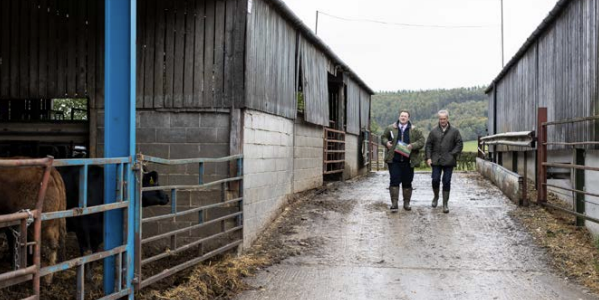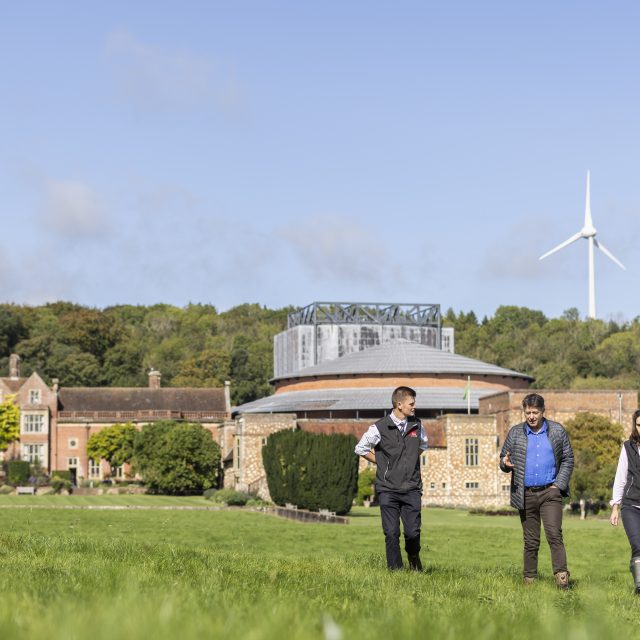Farm succession planning: The overlooked pitfalls of IHT gifting
Lifetime gifting of farm or estate assets through Potentially Exempt Transfers (PETs) can be a valuable tool for succession and Inheritance Tax (IHT) planning. While your solicitor and accountant can guide you through the legal and financial implications,
it is equally important to acknowledge the practical and human consequences of transferring assets between generations.
Tax efficiency is important, but it is only part of the equation. Decisions on when and how to make a gift – and even what form it should take – often hinge on broader considerations such as affordability, operational feasibility and family dynamics. Making gifts without fully considering the personalities involved or delving into the detail of what it might mean day to day can mean swapping an IHT headache for longer-term complications around management, governance and family relationships.
Here are some of the less obvious questions that are worth asking when considering gifting:
How can you avoid falling foul of reservation of benefits rules?
The Gifts with Reservation of Benefits (GROB) rules require that once an asset has been transferred, the donor no longer continues to derive any benefit from it. If HMRC determines that someone is still receiving the benefit of an asset after giving it away, it may be treated as remaining within their estate for IHT purposes.
The classic example is someone continuing to live in a house they have already gifted. A way to guard against this is to ensure that that the person who remains in the house pays a market rent to the new owner. Crucially, this money should not be paid into the farm partnership account if the occupant (or occupants) remains a partner taking drawings from the business.
It is crucial to evidence that a market rent has been paid each year – without this, HMRC may deem the arrangement invalid. This also means a bona fide legal tenancy agreement must be set up, with provisions for regular rent reviews. These reviews should be undertaken in good faith and ideally at ‘arm’s length’, which is often best evidenced by appointing different professional valuers to act for each party.
There may also be other less obvious points to address. For example, if valuable furniture and paintings are included in the gift, will they be transferred out of the house or will the donor pay rent for their use? Similarly, if the property relies on a private water supply, has a fair price for that been agreed?
Will family relationships cope with shared ownership?
Where assets are being divided between multiple family members, family dynamics and governance issues become a key consideration. For example, if a parent is considering gifting a cottage equally to three children what happens if two of them want to sell it and one of them doesn’t? These questions are not just hypothetical – they can become real sources of conflict over time.
Where land subject to an Agricultural Holdings Act (AHA) or Farm Business Tenancy (FBT) is transferred, it is equally worth considering what that means for effective management. One solution might be to set up a business vehicle through which all the siblings operate collectively. This avoids the complication of a tenant ending up with multiple landlords.
Can the recipient afford what is being given?
Property assets come with responsibilities. Maintenance costs, repairs and even compliance costs can mount up and not every recipient will have the means to cover them. We have seen cases where potential recipients have had to decline valuable property because the repair liabilities were too high because of its listed status. This can be a particular challenge where gifting a large house without the surrounding land to generate an income. Without land, ownership may not be a viable proposition for the recipient. This is why professional advice is often as critical for the recipient as it is for the donor.
Have the practicalities been thought through?
Transferring residential property through the generations can involve practical details, that if overlooked, can cause difficulties. Is there direct access to a public highway? Does a new right of way need to be created? Where do all the utilities come from? Are they separately metered?
Expectations can shift once someone new takes ownership of a property. A family member who invests heavily in a gifted property may be less tolerant of a muck spreader driving along the track past the front door, than the farm worker who lived in it previously. Small details can become friction points if not considered at the outset.
When transferring land, it is equally important not to overlook administrative details. For example, if the land has abstraction rights, the licence will need to be transferred into the name of the new owner.
What happens if things change?
Gifting property does mean relinquishing control – but some protective measures can be built in. Applying a restrictive covenant to a gifted property is one way of preventing unwelcome changes, such as large extensions, new buildings overlooking the main house, or subdivision into multiple dwellings. Measures like this can protect the donor and even after their death will safeguard against developments that may undermine the holding’s long-term value.
Are you protecting your own future?
While the proposed cuts to IHT reliefs are a strong driver to act, what you gift shouldn’t be at the expense of your own financial security. Nor should it undermine your continued eligibility for Agricultural Property Relief or Business Property Relief if still relying on the allowances available. Professional advice can help to make sure you don’t get carried away, leaving yourself vulnerable in later years.
Have you had the right conversations?
Finally, the best way to navigate the complexities of gifting is through open conversation. Transparency about intentions and expectations reduces the risk of unpleasant surprises and things going wrong. For example, gifting one child a portfolio of holiday cottages may sound like a neat IHT solution, but if they have no interest in running that type of business, it may quickly unravel. Clear conversations about who is receiving what, and why, are essential.
With the proposed IHT reforms on the horizon, there is growing pressure on landowners to act. Yet it is crucial to remember these measures are not just about tax. Without careful planning, well-intentioned transfers may create as many challenges as they solve. If you would like help in navigating this process, contact Laura Olliff-Lee or Peter Thomas.






